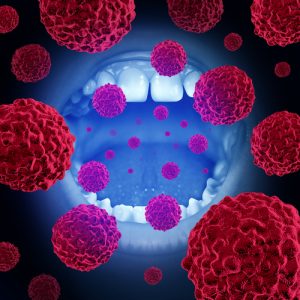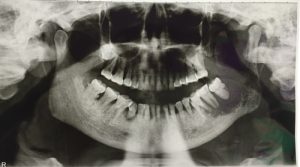The Lifesaving Importance of Oral Cancer Screenings
Oral cancer is a silent and subtle disease that can creep up on anyone, making early detection crucial for increasing survival rates. Fortunately, our experienced Grand Haven,MI dentist, Dr. John Leitner offers Oral cancer screenings aimed to identify cancer or precancerous conditions in their infancy, enhancing survival rates and minimizing morbidity.
These screenings are performed at your routine dental visits. If you’re overdue for a dental appointment, contact your dentist in Grand Haven dentist by calling us at (616) 842-2850 today!
What Are Oral Cancer Screenings?
Oral cancer screenings are medical examinations and assessments conducted by healthcare professionals to detect signs of oral cancer or precancerous conditions in a person’s mouth. These screenings are an essential part of preventive healthcare, as early detection of oral cancer can significantly improve the patient’s chances of successful treatment and survival.
Benefits of Yearly Oral Cancer Screenings
 Receiving an oral cancer screening can provide you with the following benefits:
Receiving an oral cancer screening can provide you with the following benefits:
- Early Detection: One of the primary benefits of oral cancer screenings is the early detection of oral cancer and precancerous conditions. Detecting oral cancer in its early stages significantly improves the chances of successful treatment and a more favorable prognosis.
- Improved Survival Rates: Treatment of oral cancer early on can lead to higher survival rates.
- Reduced Treatment Intensity: When oral cancer is detected early, the treatment required may be less invasive and less aggressive. This can result in a lower risk of complications and a better overall quality of life during and after treatment.
- Lower Healthcare Costs: Treating oral cancer in its early stages is generally less costly than treating advanced-stage cancer.
- Minimal Disruption to Daily Life: Early-stage oral cancer treatment is typically less disruptive to a person’s daily life compared to advanced-stage treatment. This includes shorter hospital stays, fewer side effects, and a quicker return to normal activities.
- Preservation of Oral Function: Early detection and treatment can often preserve a person’s ability to speak, eat, and maintain good oral health. Advanced-stage oral cancer may require more extensive surgery, leading to functional impairments.
- Emotional Well-being: Detecting and treating oral cancer early can reduce the emotional and psychological stress that often accompanies a cancer diagnosis. It provides individuals with a better sense of control over their health and future.
- Increased Awareness: Routine oral cancer screenings can raise awareness about the risk factors associated with oral cancer, such as tobacco and alcohol use. This can encourage individuals to make lifestyle changes to reduce their risk.
Symptoms of Oral Cancer
If you’ve noticed any of the following symptoms, contact your healthcare professional as soon as possible.
Persistent Mouth Sores
One of the most noticeable signs of oral cancer is the presence of persistent sores or ulcers in the mouth that don’t heal within two weeks. These sores can be painful and may bleed.
Red or White Patches
Red or white patches in the mouth, known as leukoplakia (white patches) or erythroplakia (red patches), can be indicative of oral cancer. These patches may be flat or slightly raised and are typically found on the tongue, the floor of the mouth, or the inner cheeks.
Unexplained Bleeding
If you experience unexplained bleeding in your mouth, especially without an obvious cause such as an injury or dental procedure, it could be a sign of oral cancer.
Pain or Difficulty Swallowing
Persistent pain or discomfort while swallowing, known as dysphagia, is a symptom that may be associated with oral cancer. This can be due to tumors obstructing the throat or affecting the normal function of the mouth and throat.
Chronic Sore Throat or Hoarseness
A persistent sore throat or hoarseness that lasts for an extended period without an apparent cause could be indicative of oral cancer. This is particularly true if it’s not associated with a respiratory infection.
Numbness or Tingling
Numbness or tingling in the mouth or on the lips can be a sign of nerve involvement due to oral cancer. This occurs when the cancer affects nerves in the oral cavity.
Changes in Speech
Oral cancer can cause changes in speech patterns. This may be due to the presence of tumors affecting the tongue, palate, or other parts of the oral cavity.
Swelling or Lumps
Unexplained lumps, bumps, or swelling in the mouth, throat, or neck can be indicative of oral cancer. These may or may not be painful and are often discovered during routine self-examinations or dental check-ups.
Loose Teeth or Poorly Fitting Dentures
Oral cancer can lead to changes in the alignment of teeth or cause ill-fitting dentures due to changes in the structure of the jaw or gum tissue.
Weight Loss and Fatigue
As with many types of cancer, oral cancer can lead to unintended weight loss and a general feeling of fatigue or weakness. This is often a result of the body’s efforts to combat the disease.
Oral Cancer Screening Process
 When you come to our dental office in Grand Haven for an oral cancer screening, you can expect the following:
When you come to our dental office in Grand Haven for an oral cancer screening, you can expect the following:
- Visual Examination: The primary component of oral cancer screening tests is a visual inspection of the mouth, including the lips, tongue, gums, cheeks, and the roof and floor of the mouth. We’ll look for any abnormalities, such as lumps, sores, red or white patches, or other unusual changes in the oral tissues.
- Palpation: In addition to a visual examination, we may gently feel (palpate) the neck and throat to check for any enlarged lymph nodes or masses, which can be a sign of advanced oral cancer.
- Dental History: We may ask about your dental and medical history, as certain risk factors like tobacco and alcohol use, as well as human papillomavirus (HPV) infection, can increase the risk of developing oral cancer.
- Risk Assessment: Based on the visual examination and medical history, we may assess the individual’s risk for developing oral cancer. High-risk individuals may require more frequent screenings.
- Biopsy: If any suspicious lesions or abnormalities are found during the oral cancer screening, a biopsy may be recommended. A biopsy involves taking a small sample of the abnormal tissue for laboratory analysis to confirm whether cancerous cells are present.
Frequently Asked Questions
An oral cancer screening typically only takes a few minutes to complete. The dentist or dental hygienist will examine the mouth and throat for any signs of cancerous or precancerous cells, which may include looking for abnormal tissue, discoloration, lumps, or other changes in the tissues of the mouth and throat. It’s a quick and painless procedure that can be performed during a routine dental exam.
No, an oral cancer screening is generally painless. The dentist will examine the mouth and throat using a variety of tools, such as a light and a mirror, and may use their fingers to feel for any lumps or abnormal tissue. The procedure itself is not invasive and won’t cause any discomfort.
The frequency of oral cancer screenings may vary depending on your individual risk factors, but generally, it is recommended to have an oral cancer screening at least once a year during your routine dental exam. If you’re at a higher risk for oral cancer due to factors such as tobacco use, heavy alcohol consumption, or a family history of cancer, your dentist may recommend more frequent screenings.
Yes, certain lifestyle changes can help reduce the risk of oral cancer. These include quitting tobacco use, limiting alcohol consumption, practicing good oral hygiene, and receiving the HPV vaccine.
Schedule Your Oral Cancer Screening Today!
If you’re experiencing any signs of oral cancer or if you’re overdue to receive a routine dental checkup, schedule an appointment today with our Grand Haven, MI dentist by giving us a call at (616) 842-2850. Your oral health is our top priority!

